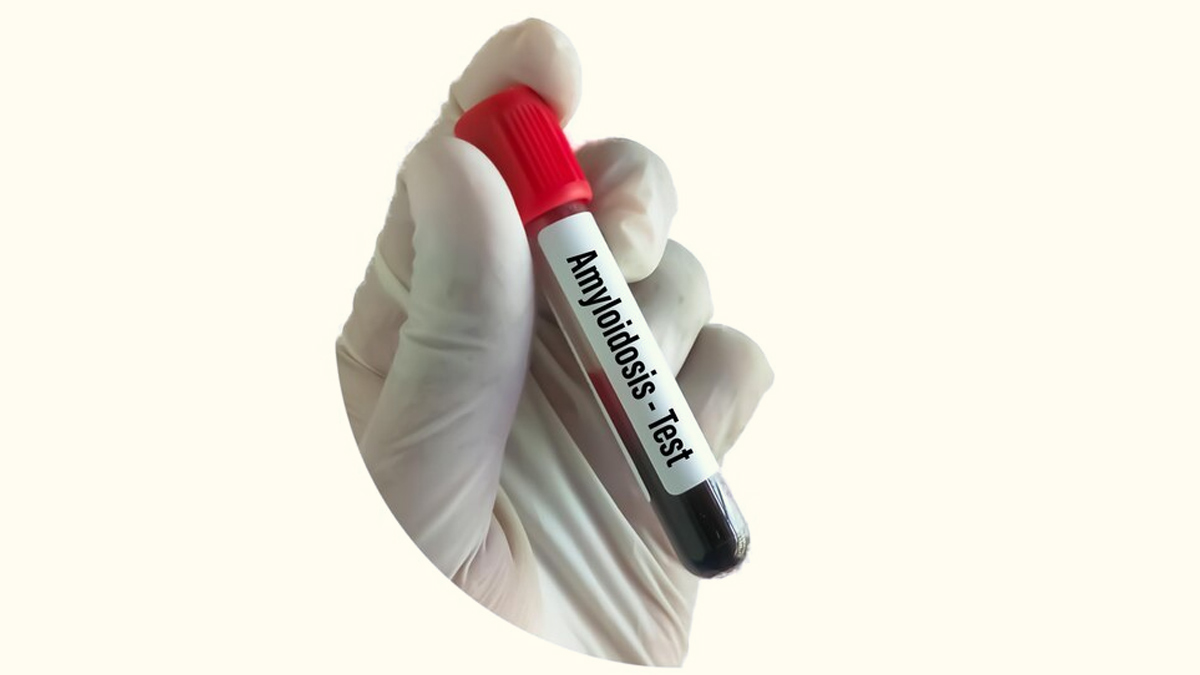
There is an uncommon but potentially fatal category of disorders marked by the accumulation of misfolded proteins. The accumulated protein is known as amyloids, which deposits in numerous human tissues and organs. These proteins can accumulate in many places, interrupting normal function and causing a variety of health issues.
“Men are more likely than women to get this condition. It affects persons between the ages of 22 and 72, with the average age being 51. The most prevalent symptom of this rare illness is heart failure,” said Dr Atul Ingale, Consultant of Nephrology and Transplant Physician, Fortis Hiranandani Hospital, Vashi to know about details of this rare condition.
Common Types Of Amyloidosis
Immunoglobulin Light Chain Amyloidosis
This form is associated with plasma cell disorders, such as multiple myeloma. Immunoglobulin light chains, components of antibodies, misfold and deposit in tissues, affecting organs like the heart, kidneys, and nerves.
Also read: 9 Protein Sources Beyond Eggs For A Balanced Diet
Secondary Amyloidosis
This type of amyloidosis is usually secondary to chronic inflammatory diseases, such as rheumatoid arthritis or inflammatory bowel disease. The amyloid fibrils in AA amyloidosis are composed of a protein called serum amyloid A.

Hereditary Amyloidosis
This type is linked to genetic mutations that cause specific proteins to misfold. Hereditary amyloidosis may affect the heart, nerves, kidneys, or other organs, depending on the mutated protein.
Symptoms and Diagnosis
The symptoms of amyloidosis vary depending on the organs affected. Common signs may include:
- Fatigue: Due to compromised organ function.
- Swelling: Especially in the ankles and legs.
- Shortness of Breath: If the heart or lungs are affected.
- Numbness or Tingling: Resulting from nerve damage.
- Proteinuria: Presence of excess protein in the urine.
Diagnosing amyloidosis can be challenging as its symptoms overlap with those of many other conditions. Healthcare professionals may use a combination of tests, including blood and urine tests, imaging studies, and a biopsy of the affected tissue, to confirm the diagnosis.
Treatment Options
The approach to treating amyloidosis depends on the type, extent of organ involvement, and overall health of the patient. Common treatment modalities include:
Chemotherapy
In AL amyloidosis, chemotherapy or other medications targeting plasma cell disorders may be prescribed to reduce the production of abnormal proteins.
Stem Cell Transplantation
This treatment may be considered for eligible patients with AL amyloidosis, aiming to replace abnormal plasma cells with healthy ones.
Symptomatic Management
Addressing symptoms and complications, such as heart or kidney involvement, is crucial for improving the patient's quality of life.
Also read: From Protein Alternative To Liver Health, Here Are Some Health Benefits Of Beans
Liver Transplantation
In hereditary amyloidosis affecting the liver, a liver transplant may be an option to address the root cause. Amyloidosis is a complex and diverse group of diseases that demand a multidisciplinary approach for accurate diagnosis and effective management. Ongoing research is vital to further understand the underlying mechanisms, identify new treatment strategies, and improve outcomes for individuals living with amyloidosis. Increased awareness among healthcare professionals and the general public is essential to ensure timely intervention and support for those affected by this challenging condition.







